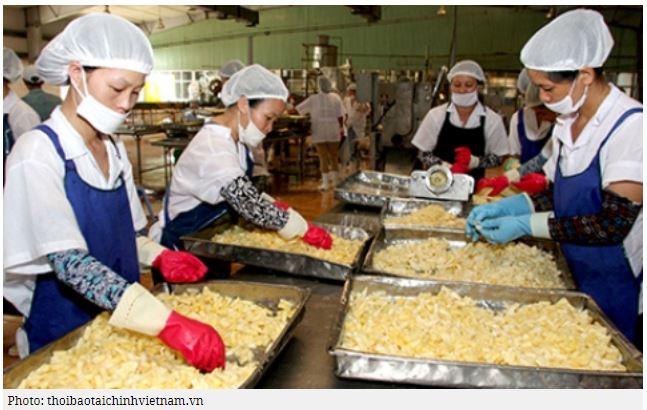Vietnam: Food processing seeks more foreign investment
Industry seeing rapid growth over recent years and expects further expansion from foreign investment.
Vietnam’s food processing industry has experienced rapid growth over the past five years and further expansion is expected as it eyes additional foreign investment, according to the Singapore-based Food Navigator Asia news.
“The country’s industrial production index rose by some 6.8 per cent across the 2013 to 2017 period for the processed food industry and 9.7 per cent for the drinks industry,” Deputy Minister of Industry and Trade Do Thang Hai said at a recent conference in Ho Chi Minh City.
With a vision of “Toward Prosperity, Creativity, Equity, and Democracy”, Vietnam’s food processing sector is also a major area of focus in the country’s development strategy to 2025 and 2035, within which foreign investment is expected to play a major developmental role.
According to the Foreign Investment Agency at the Ministry of Planning and Investment, total foreign investment into Vietnam’s food processing industry has hit the $11.2 billion mark in 717 projects, excluding M&A deals.
The attractiveness of Vietnam’s food processing industry among investors has been attributed to favorable tax policies, as technology related to production chains is completely tax exempt.
Investors are also subject to an enterprise income tax that is 5 per cent lower than the conventional rate of 25 per cent, while prioritized projects are tax-exempt for up to four years and then subject to a tax rate 50 per cent lower for another nine years.
The majority of investment has been channeled into the processing of seafood, beverages and agricultural produce, but currently faces a major obstacle in terms of domestic supply, meaning that these materials end up being imported.
Despite preferential policies for investors, Vietnam’s food processing industry has not been able to attract investment from markets strong in the field, like Japan, the US, Australia, and the EU.
According to the Ministry of Industry and Trade (MoIT), the production and processing of milk, beverages, cooking oil and confectionary are expected to grow to become the country’s most productive processing market segments.
Local dairy consumption is expected to hit 27 to 28 liters per person per year by 2020, cooking oil consumption will hit 17 kg in 2020 and 20 kg by 2025, confectionery consumption will rise by 10 per cent per year, and beverage consumption will reach 6.8 billion liters in 2020 and 9.1 billion by 2025.
In Ho Chi Minh City, the food processing industry grew 8.7 per cent from January to October this year, according to the city’s Department of Trade.
An example of a company taking advantage of these growing markets is South Korea’s CJ Cheiljedang (CJCJ) Group, which has acquired or bought significant shares in a number of food brands and companies in the country, including Ong Kim, Vissan, and the Cau Tre Processing JSC.
CJCJ also told local media that it expects to earn some $700 million in revenue by 2020 by catering to both domestic and foreign markets.
According to Deputy Minister Hai, Vietnam’s annual food consumption makes up some 15 per cent of its GDP and is expected to expand due to ready-to-eat food trends as well as higher annual incomes. He added that things look hopeful for the industry in the future, especially after free trade agreements signed by Vietnam come into force and open up a wider consumer and investor market.
These agreements include the Comprehensive and Progressive Agreement for Trans-Pacific Partnership (CPTPP) and the EU-Vietnam Free Trade Agreement (EVFTA). Business Monitor International (BMI) has predicted that Vietnam’s food and beverage industry will grow 16.1 per cent between 2016 and 2019.
Source: http://www.vneconomictimes.com/article/vietnam-today/food-processing-seeks-more-foreign-investment


 English
English




